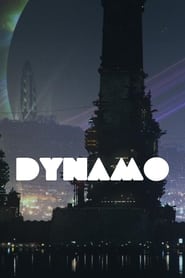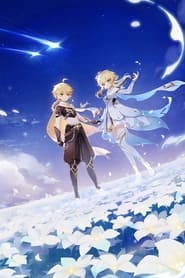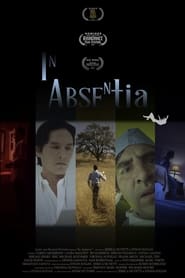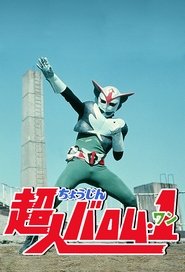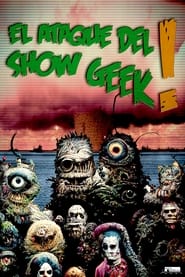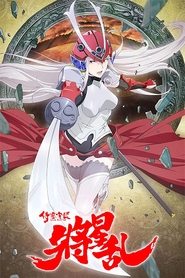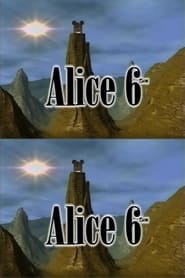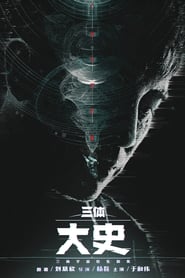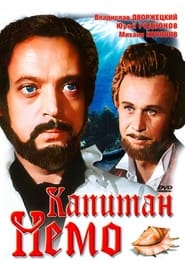Sci Fi Fantasy TV Series - Page 307
-
Dynamo
2012
Dynamo
2012
star 6.2A sci-fi/fantasy/cute cyberpunk web series featuring ultra-secretive intelligence agents, average people just trying to get by, and a mysterious character who causes trouble for everyone. -
Genshin Impact
0000
Genshin Impact
0000
-
Two Spirits Love
2015
Two Spirits Love
2015
star 8Businessman Tharatorn suffers memory loss, transforming into the complete opposite of his former self, remembering only Kaew — or anyone who resembles her. As he navigates two contrasting personalities, he must uncover the truth about who he really is and come to terms with a life-changing revelation. -
Jikuu Tantei Oyu
2019
Jikuu Tantei Oyu
2019
One day, Yuka Sekiguchi who is working at a real estate company, had to take over her grandmother's house and was asked to check for a hidden closet. Due to curiosity, she looked for it and found the hidden closet where she suddenly slips back in time to Edo clueless. She then meets Ukai Denzaburo, a policeman at Minamichi Police Station, who got her involved in an investigation of a murder and asked for her advice during the investigation due to his poor reasoning skills. -
MechWest
2024
MechWest
2024
In a fantastical Wild West world, oddball Pearl West is the only one who thinks of mechs as anything more than tools and appliances. But one fateful day she stumbles upon an unlikely friend: a curious mech named Six who carries a tremendous secret. Now Pearl, aided by her stalwart brother and a quirky salesman named Casey, must brave the dangers of the untamed frontier to protect Six from dangerous bandits. The future of all the Western nations may very well rest in Pearl’s hands! -
超变兽车侠
2024
超变兽车侠
2024
-
In Absentia
2017
In Absentia
2017
star 10Dark, mysterious and visually captivating, "In Absentia" is an anthology series consisting of contemporary, dark folk tales that focus on the absence of life's normal order. -
Devil's Due
1979
Devil's Due
1979
During WW2, a young student of medicine comes to the big city to discover the secret of death, and stays at a motel that turns out to be a brothel. He is asked from Ustasha officer to perform experiments of resurrecting the dead, while the Fascist authorities look for a female communist hiding in the city. -
Choujin Barom-1
1972
Choujin Barom-1
1972
star 10Chojin Barom One (超人バロム・1 Baromu Wan), or Superhuman Barom 1 is a live-action adaptation of a Japanese manga series written by Takao Saito, produced two years after the comic was originally released. It stars Hiroyuki Takano as Gentaro Shiratori and Hiroki Izuka as Takeshi Kido, the two protagonists. -
Strange World of Coffin Joe: TV Serie
1968
Second Brazilian TV show hosted by Coffin Joe. Produced by TV Tupi and directed by Antônio Abujamra, this TV show has a better production quality than the "Além, Muito além do Além" (1967-68) and a more dreamlike and surreal tone, but unfortunately not the same audience, which expect something more realist like the previous TV show. A lot of stories from this TV show was used later on the Coffin Joe's Horror Comic Books. -
Karen Senki
2014
Karen Senki
2014
star 7.2In the post-apocalyptic aftermath of a war between machines and their creators, machines rule while humans exist in a state of servitude. Titular character Karen leads Resistance Group 11, an eclectic group of humans who find themselves fighting for their lives as they are hunted by the robots in each episode. Is this the end of humanity? Are they fighting a losing battle? Through Karen, we delve into a struggle between right and wrong, between indifference and love that explores some of the deepest questions about humanity. What is the difference between a thinking machine and a human being? What is a soul? -
To
2009
To
2009
OVA series composed of two vignettes. This Sci-Fi series comprises two episodes, approximately 42 minutes each, that are completely unrelated. Each tells a short tale of love and humanity amidst a backdrop of science fiction. -
Riverworld
2010
Riverworld
2010
star 3.9Riverworld is a television film released on the Syfy channel on April 18, 2010. Based on the Riverworld books by Philip José Farmer, the made-for-TV film is a reboot of the aborted Sci-Fi Channel Riverworld television series, of which only the pilot episode was produced. Riverworld stars Tahmoh Penikett, Laura Vandervoort, Jeananne Goossen, Alan Cumming, Mark Deklin, and Peter Wingfield. It is produced by Reunion Pictures, an award-winning Canadian-based production company. It is written by Robert Hewitt Wolfe and directed by Stuart Gillard. -
Mr. Insomnia Waiting for Love
2023
star 6Popular musician Lu En Tong and technology firm president Song Yan Xu both suffer from chronic insomnia. They come to discover that by touching one another, sleep befalls them both in a matter of seconds. -
Soul Buster
2016
Soul Buster
2016
star 5.8Soul Buster is about a boy named Son Shin who lives in the present time. He breaks a seal in his dream and erases the past known as the Sangokushi period. Without knowing why, he travels back in time and gets involved with the Sangokushi timeline. -
Alice 6
1995
-
San Ti: Da Shi
0000
San Ti: Da Shi
0000
Criminal policeman Shi Qiang after his radiation overdose and scientist Wang Miao investigate the theft of nanomaterials, uncovering a conspiracy by a mysterious organization to destroy human unity. -
The Chosen Ones
2020
The Chosen Ones
2020
star 5.2Twelve girls wake up in a secluded mansion, without knowing how or why they got there. As they realize they are locked in, the situation in the house threatens to escalate. But the mansion also harbours a dark secret. The girls are part of a medical experiment and if they don’t manage to escape they will die, one by one. -
Captain Nemo
1976
Captain Nemo
1976
star 6.5A Soviet three-part television miniseries directed by Vasily Levin loosely based on the novels Twenty Thousand Leagues Under the Sea.
